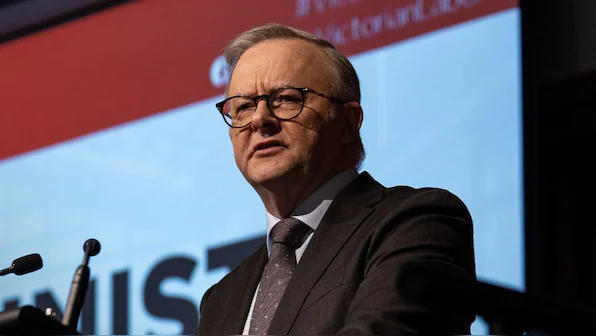Australia’s Senate is reviewing a proposed law that could fine social media platforms up to 50 million Australian dollars for failing to prevent children under 16 from creating accounts. Sunite Bose, a digital industry advocate, has expressed concerns about rushing the bill, urging more time for evaluating age-assurance technologies. The law is expected to pass by Thursday and would take effect a year later, allowing platforms time to enhance privacy protections.
On Monday, an advocate representing major social media platforms, Sunita Bose, has urged an Australian Senate committee to postpone the legislation banning children under 16 from using the sites. Bose has suggested that Parliament should delay the decision until June when the government’s review of age assurance technologies will be finished.
Under the legislation, the platforms that fail to restrict young children from creating accounts could face fines as high as 50 million Australian dollars ($33 million). It is expected to pass in Parliament by Thursday with backing from the major parties.
Bose is the managing director of Digital Industry Group Inc., which represents the digital industry in Australia, including platforms like X, Instagram, Facebook, and TikTok.
She was responding to inquiries during a one-day Senate committee session on the groundbreaking legislation introduced last week when she expressed her concerns. She pointed out that Parliament is being asked to approve a bill this week without a clear understanding of how it will actually work.
The law would come into effect one year after it’s passed. This would give platforms time to develop technological solutions that also protect users’ privacy.
Communications Minister Michelle Rowland shared that she is eager to see the Senate committee’s assessment of the proposed law, which supports parents in denying their children access to social media.
She stressed that present-day social media isn’t safe for children and it shouldn’t define growing up. There’s so much more to life than distracting notifications and doomscrolling. And nobody should try to live up to the unrealistic perfectionism promoted by influencers.
Bose faced intense questioning from various senators, who challenged the accuracy of her responses.
Opposition Senator Ross Cadell questioned how his 10-year-old stepson was able to have accounts on Instagram, Snapchat, and YouTube from the age of 8, even though the platforms set a minimum age limit of 13. Bose admitted that this area needed improvements and expanded further on her reasons.
She cautioned that banning social media might make some children feel isolated and disconnected from their peers. This could push them to explore riskier, less secure online platforms that lack the safety measures of mainstream sites, increasing their exposure to harmful content and unsafe interactions.
Her statement that “this could compromise the safety of young people” was called outrageous and drew a strong rebuttal from opposition Senator Sarah Henderson. The latter also criticized Bose for trying to protect big tech companies.
Independent Sen. Jacqui Lambie questioned why the platforms weren’t using their algorithms to stop harmful content from reaching children. These algorithms have been criticized for keeping children addicted to technology and exposing them to harmful content, including material related to suicide and eating disorders. Lambie asserted that the platforms have the ability to prevent this, but the only thing stopping them is their own greed.
As a response, Bose clarified that algorithms are already being used to protect young people online, including filtering out nudity. She emphasized the need for continuous investment in these algorithms to make them more effective at addressing harmful content.
When asked by opposition Sen. Dave Sharma, Bose admitted she was unaware of how much advertising revenue the platforms she represented generated from Australian children.
She also stated she wasn’t familiar with a Harvard study that revealed X, Facebook, Instagram, TikTok, YouTube, and Snapchat earned $11 billion in advertising revenue from U.S. users under 18 in 2022.




